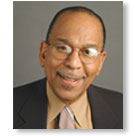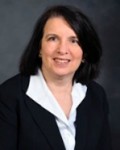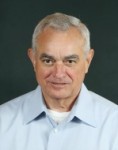Widgetized Section
Go to Admin » Appearance » Widgets » and move Gabfire Widget: Social into that MastheadOverlay zone
Public Service Profiles – Unsung Heroes
-
Gene C. Blue, president/CEO, Arizona Opportunities Industrialization Center
-
Patricia Dalton, chief operating officer, Government Accountability Office
-
Lynn Norris, consultant, City of Tupelo
-
Dr Tamara O’Hearn, founder/director, Gamsby’s Project Hospital Charity
- Gene C. Blue, president/CEO, Arizona Opportunities Industrialization Center
- Patricia Dalton, chief operating officer, Government Accountability Office
- Lynn Norris, consultant, City of Tupelo
- Dr Tamara O’Hearn, founder/director, Gamsby’s Project Hospital Charity
Gene C. Blue, president/CEO, Arizona Opportunities Industrialization Center (AzOIC)
Gene C. Blue is the 2014 recipient of the Gloria Hobson Nordin Social Equity Award presented annually by ASPA’s Section on Democracy and Social Justice. Blue described the award as “a humbling and outstanding occurrence in my life,” adding, “I will endeavor to merit the recognition this award represents in all areas of my life.” Blue serves as president/CEO for the Arizona Opportunities Industrialization Center (OIC). It is a national nonprofit that offers employment and training opportunities for low-income and disadvantaged individuals. It has programs in almost all 50 states and the District of Columbia. The AzOIC offers education and career services and programs for veterans and youth.
What do you do?
As president/CEO for Arizona OIC, I represent the agency before both private and public organizations promoting the mission of ‘helping others to help themselves.’ Also, I serve on city, state and county boards and commissions which impact the welfare of our student and public populations. I am also involved with the faith-based community, soliciting support for the active participation of members of all faith entities. While direct endorsement and/or support of political candidates is not permitted, I strive to educate our community on the necessity to be actively involved in voting and to choose candidates who represent our best interest not just “self-interest”.
What was your first job in public service?
I served on the Board of Directors for Phoenix (Arizona) OIC for a two year period. My involvement with this private, nonprofit corporation provided a firsthand look into the “world of public service.”
What inspired you to choose public service?
Growing up in a family with deep and sincere religious conviction was the initial inspiration. My father and mother were outstanding examples and models of “giving to others.” They directly influenced my desire to “help those in need.” Additionally, the death of President John F. Kennedy and Dr. Martin Luther King, Jr., sealed my direction to follow a path of public Service.
Did you have a mentor(s) that guided you when you first entered government service? What role did he/she play in your career development? If no, do you think a mentor(s) are important?
The mentor(s) who guided me included my older brother Joseph who was at the time working for the Department of Defense; our family pastor, Dr. L.L. Smith; the past executive director of OIC, Herb Boyer and past chairman of the Board of Directors, Sidney S. Goodman, Jr. Each of these individuals and my parents were sources of education and inspiration. My wife, Barbara, really convinced me to enter a position in public service when I was trying to make up my mind: private or public?
From your time in public service, share an experience that was inspiring.
For me inspiration comes in the success of others. And, I am so pleased that many of the folk who came to OIC for help were the reasons for my staying with the organization. Three of our noted successes now occupy positions as chief of police in a major California City, vice-mayor of the City of Phoenix and special assistant to the city manager for Phoenix.
Where do you find daily inspiration for your job?
Each day begins with a thank you to our all-encompassing God. I take the time to read my daily word and receive inspiration and guidance from the scriptures.
In the face of growing anti-government sentiment, as a public servant how do you respond to criticism that the government is an inefficient bureaucracy?
In government or any other area, we receive as or more than we give. Positive criticism is necessary and welcomed. Although there is inefficiency in some areas, on the whole government is no better or worse than the people providing the service. I encourage people to analyze themselves and their performance before criticizing others.
What is your advice to young professionals entering the public service?
“Dedication to promoting social and economic justice, defending civil rights and enhancing the dignity of all people” is a phrase attributed to Calvin C. Goode, a 22-year member of the City of Phoenix City Council. I frequently refer to that phrase and the commitment required to live the truth encompassed in its words. Also, I advise young professionals that public service is not an area where you will “get rich.” Much of your reward will be intangible, but truly long lasting with a positive impact on the public.
Patricia Dalton, chief operating officer, U.S. Government Accountability Office
Patricia Dalton was a 2012 recipient of a National Public Service Award. She serves as chief operating officer for the U.S. Government Accountability Office (GAO). In that role, Dalton oversees the composition and development of hundreds of reports to Congress. Her agency plays a crucial and well-known role in documenting and recommending improvements for government efficiency. She has worked for more than 30 years in the federal government.
What do you do?
GAO is an independent, nonpartisan professional services agency in the legislative branch of the federal government. Commonly known as the audit and investigative arm of the Congress, we examine how taxpayer dollars are spent and advise lawmakers and agency heads on ways to make government work better. As the Chief Operating Officer, I am responsible for day-to-day management of the agency and oversee the development of approximately 1,000 reports and testimonies to the Congress each year. These and other GAO initiatives provide critical information for decision making, save the taxpayers billions of dollars and improve a wide range of government programs and services.
What was your first job in public service?
I began my career as a program analyst at the U.S. Department of Labor. In that position, I got exposure to a lot of the department’s programs and was able to do a variety of work. The work ranged from a study of how to make the work processes of an insurance program more efficient and effective to providing the analytical support to a budget request of a major program budget account.
What inspired you to choose public service?
Like many, I was drawn to public service by the opportunity to make a difference for people. My career has not been in direct service delivery, but in oversight of government operations. By presenting fact- based information and sound recommendations, oversight organizations provide accountability and paths to a more efficient and effective government. In my current position, I have been fortunate to be able to contribute to improving the entire breadth of government services and functions.
Did you have a mentor(s) that guided you when you first entered government service? What role did he/she play in your career development? If no, do you think a mentor(s) are important?
I did not have a mentor when I first entered government service, but I have had several mentors over the course of my career. Mentors provide valuable perspective. They should not be a part of what you are doing day-to-day so that they can provide a broader context and be a good sounding board for your experiences. Mentors can provide a reality check and the guidance and support that can help you make good choices to advance your career.
Where do you find daily inspiration for your job?
I find inspiration from the results of our work. At GAO, we track the financial and non financial benefits resulting from our work. Last year, our work resulted in over $50 billion in financial savings and 1,300 in other benefits that improved how government delivers services and operates. I also get inspiration from the people coming into public service. They are extremely talented and dedicated. Seeing them grow into government leaders is truly inspirational.
In the face of growing anti-government sentiment, as a public servant how do you respond to criticism that the government is an inefficient bureaucracy?
Because the government is so large, it becomes an easy target. You need to focus on all the things the government does and the services it provides from defending our country, to supporting cutting edge research, to assisting those in need.
What is your advice to young professionals entering the public service?
Public service is an incredibly rewarding career. The variety of work is vast and opportunities are great. Be open to those opportunities. Be innovative. We need to keep looking for better ways to do things.
William Lynn Norris, consultant, City of Tupelo
William Lynn Norris serves as a volunteer consultant for the City of Tupelo. Previously, he was its chief financial officer and city clerk for 13 years. He has close to 30 years’ experience working in local government finance. As a savings to the city, Norris recommended elimination of the CFO position in Tupelo. As evidence of his commitment to public service, he told a Daily Journal reporter that “he could make money doing anything” but chooses to serve his community. He was nominated by Robbie Ward, reporter with Mississippi’s Daily Journal, who said, “He has the dedication of a public servant that exemplifies ideas of anyone pursuing public service and public administration careers.”
What does he do?
Norris has literally saved the city of Tupelo millions of dollars in personnel costs, the city’s largest expense. Norris faced a city bloated with overtime costs. He worked with department heads to find ways to decrease overtime, one of the first and more obvious ways to immediately impact the roughly $20 million in annual personnel costs. This resulted in the city’s overtime costs dropping from a high of $840,598 in calendar year 2009 to a low of $342,317 in 2012.
As CFO, Norris crafted a plan to reduce long-term personnel costs that did not involve mass layoffs, Norris’ plan included a mix of attrition, freezing vacant positions and reorganizing positions across departments. Under Norris’ watch Tupelo’s audits routinely return with no significant findings.
Additionally, Norris incorporated five-year capital project budgets for the Tupelo government, requiring city leaders to plan farther ahead for big-ticket items. He leveraged bonds to fund longtime municipal needs and allowed elected officials and department heads to balance capital needs among all departments. This has resulted in the Tupelo government better planning for fire trucks and park improvements; a $12 million aquatic center; expansion of sidewalks and other quality of life needs for the city.
Norris retains a small office in Tupelo’s City Hall and works as an unpaid consultant, focused on keeping the city on track with capital projects, budget planning and offering ideas to eliminate unnecessary city costs. He continues searching for innovative ways to finance critical projects to help the community’s economic vitality. He also keeps looking for ways to fund revitalization of Tupelo’s older, declining residential areas.
Norris also preaches the gospel of five-year capital budgets, vigilance of personnel expenditures and constant monitoring to other municipal governments. Norris doesn’t look at his public service to Tupelo or any government as an opportunity for a paycheck.
What was his first job in public service?
Norris’ first job listed on his resume is chief financial officer/finance director/ city clerk for the city of Tupelo in 1985. He has a bachelor’s degree in accounting and has CPA credentials. He holds membership with the American Institute of Certified Public Accountants and the Mississippi Society of Certified Public Accountants.
What inspired him to choose public service?
Lynn has a genuine desire to help Tupelo and other cities move beyond existing; instead, he creates opportunities for them to reach full potential.
Does he have a mentor(s)? What role does he think mentors play in career development?
I feel confident Norris has mentored many public servants during his career. I have direct knowledge of him mentoring Tupelo City Clerk Kim Hanna, who recently assumed Norris’ role as CFO. Norris hired Hanna in 1994 and worked with her until he left the city. Hanna said her confidence to achieve success in her new duties stems from years of experience that includes learning Norris’ techniques for identifying potential opportunities for the city and a willingness to explore new approaches to solving many recurring issues in public finance and budgeting.
Second, Norris has mentored me during the year and a half we worked closely, in my role as a journalist and him as CFO. While each of us has different goals — he enhances my ability to identify critical issues facing the community. As he points out options to public officials and leaders, the media identifies public issues important to the public’s consciousness. Norris reinforces my sense of duty and service fortified by public administration and journalism professors and other role models.
In the face of growing anti-government sentiment, as a public servant how does he respond to criticism that the government is an inefficient bureaucracy?
Norris makes a point to accept criticism and address it directly. He explains reasons behind use of public money for resources and projects that have long-term impact and result in high return on public investment. He believes in the public good and does not fear presenting options to elected officials that involve investment of tax dollars in parks, neighborhood redevelopment and public facilities since he can explain the value to the community’s future. His years of success in public finance have also stunted some criticism of novel ideas and innovative practices.
He understands that elected officials will accept some ideas but reject others. However, his belief in public service keeps him focused on finding the next opportunity to save the city resources on existing services or create new opportunities to fund quality of life enhancements.
Dr. Tamara O’Hearn, founder/director, Gamsby’s Project Hospital Charity and professor
Dr. Tamara O’Hearn has turned her own personal adversity into a passion and service to the community. Dr. O’Hearn founded Gamsby’s Project, a nonprofit through which she and her service dog visit children and adults with disabilities. She also teaches English at Huntington Christian University in Huntington IN, and volunteers her services at the prison, teaching GED classes. She has dedicated 35 years to working in the nonprofit sector and at the federal level; while not the traditional public administrator, Dr. O’Hearn serves her community through her nonprofit.
What do you do?
I direct Gamsby’s Project, a charity that I founded in 2005. It serves three counties and has won two awards. We have all of our heart in this mission to providing visits to those in long term care, hospice and children permanently disabled and living in an institution. Gamsby is my service canine and together we give back to those who went through what I did, so that the physically vulnerable are not forgotten or left behind. I also am an educator. I have been teaching writing, at a college, at battered women’s shelter, in prison and for literacy centers. The work I do impacts mostly the people who are served; thousands since we began and there will be more who receive free services through our project.
What was your first job in public service?
The Pentagon in Washington, DC. I worked as a writer, editor and PR person.
What inspired you to choose public service?
I work for the public because I know there are many in the world at a disadvantage and someone like me, with education and relatively good health, is in a position to give back. I specifically founded Gamsby’s Project after my own experience of giving birth to twins, having a stroke and spending nine days in the hospital. During that time, I had to re-learn how to walk and had a two-pint blood transfusion. Eventually, I was matched with a service canine when it was clear that the medications did not always stop the seizures. Gamsby senses the seizures and breaks my fall so that I do not injure myself. He allowed me to have total independence. I currently work full time and am not on disability.
Did you have a mentor(s) that guided you when you first entered government service? What role did he/she play in your career development? If no, do you think a mentor(s) are important?
My grandmother Lila, who died of cancer, was in and out of the hospital for 13 years. She was a woman of great faith who I adored. I moved to a school to be close to her in her final years. It was her faith literally keeping her strong as medicine had failed her at that point. She was my greatest mentor as well as an early story of spending a lot of time in a hospital environments and witnessing patient’s suffering.
From your time in public service, share an experience that was inspiring.
My favorite story is that of the residents at the children’s home where I work with Gamsby. The kids are, for the most part, left behind or were born with mental defects. I was told that the parents did not come to visit because the children do not remember them; however after bringing Gamsby, a large golden retriever with big brown eyes, all the kids petted and played with him. Many of those who “could not remember” would point and try to sound out Gamsby’s name when he arrived, obviously knowing who he was. This story always makes me emotional because I believe even the most disabled child can remember who they love.
Where do you find daily inspiration for your job?
I love what I do and would do it full time, if I could afford. I have a deep compassion for people who suffer or are forgotten. I grew up bringing every stray animal in the country home. I am very empathetic and hate to see people lonely or rejected. I know that visits with Gamsby, or any animal brings a sense of happiness and warmth to them. Their fears melt and they can experience joy in that time.
In the face of growing anti-government sentiment, as a public servant how do you respond to criticism that the government is an inefficient bureaucracy?
I would say that we live in tough economic times and that everything that is funded is going to be a challenge; but do not give in to negative thinking about a government and country that I am so proud to serve. I am an American and love it. I am proud to serve my country and can do it at a low cost. Many of whom I serve are soldiers while others are ordinary people; but we all have to give in order to have something to show for our country and to make it better. The government does not control our economy rather it is the citizens and we need to be better stewards of America.
What is your advice to young professionals entering the public service?
Public service is the most rewarding work. I am an educator who runs a public charity and although it is not huge in monetary rewards, my heart and spirit is full. We have to stop defining success as a number, rather as a state of being and the quality we bring to the lives of others as well as ourselves.






Follow Us!